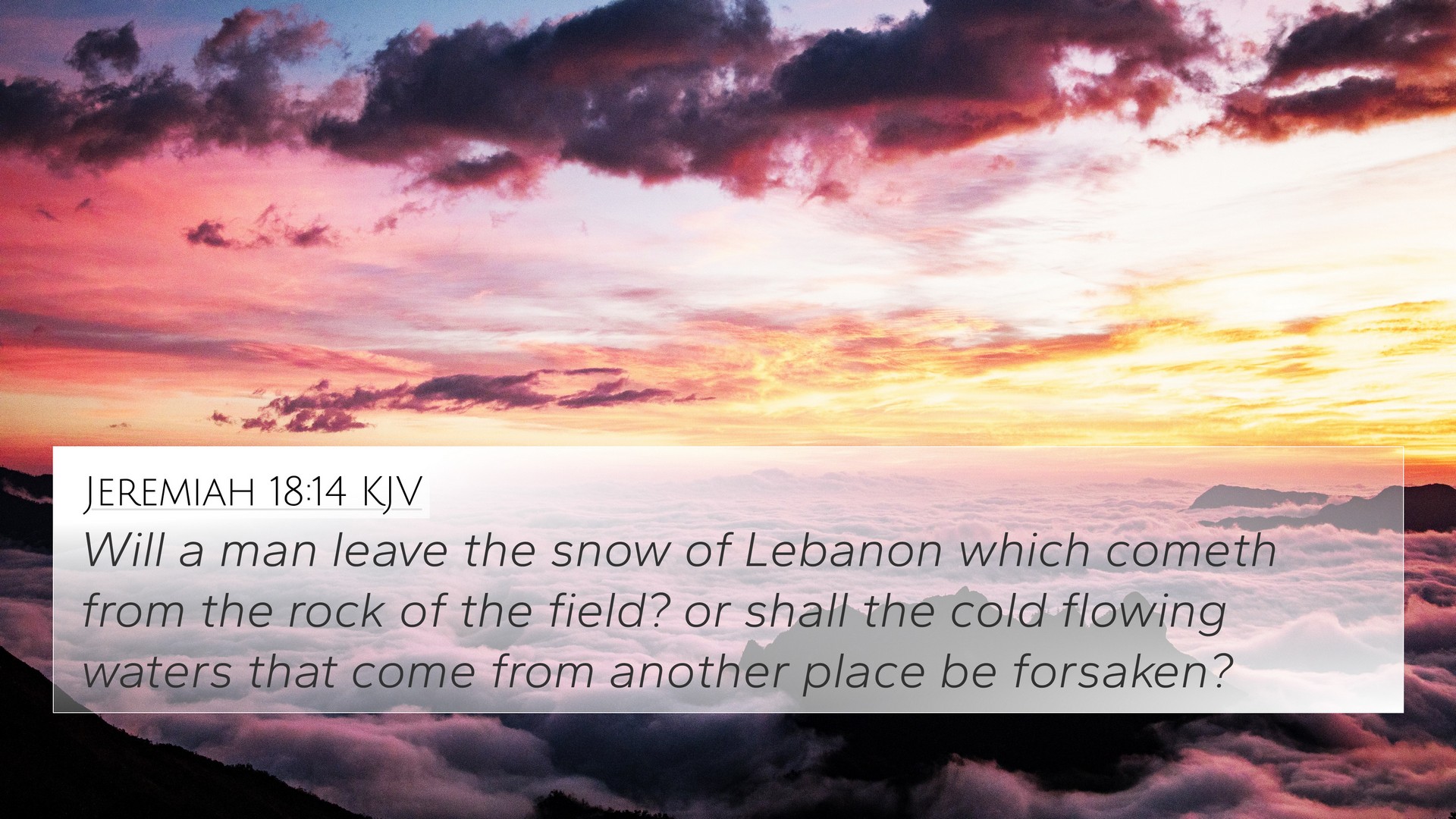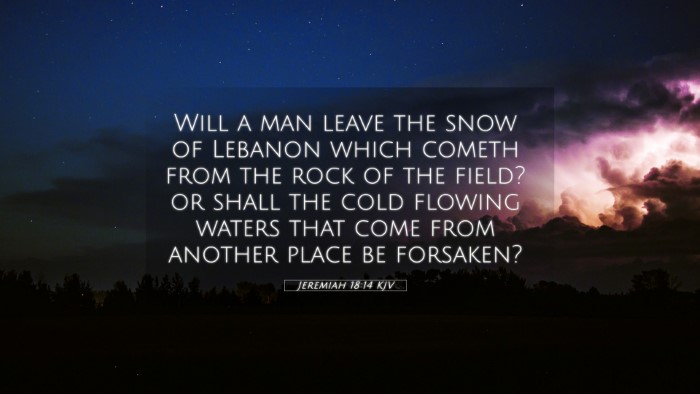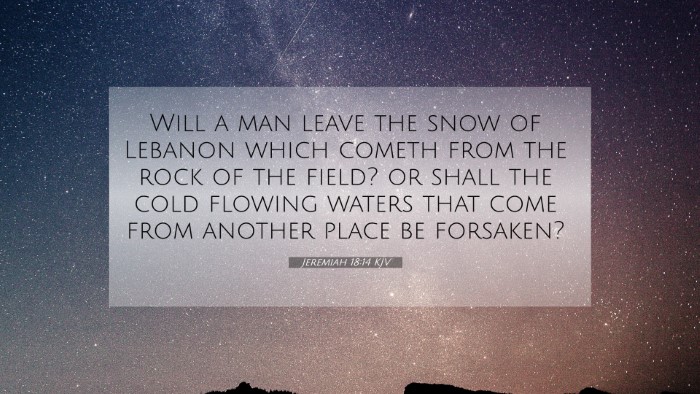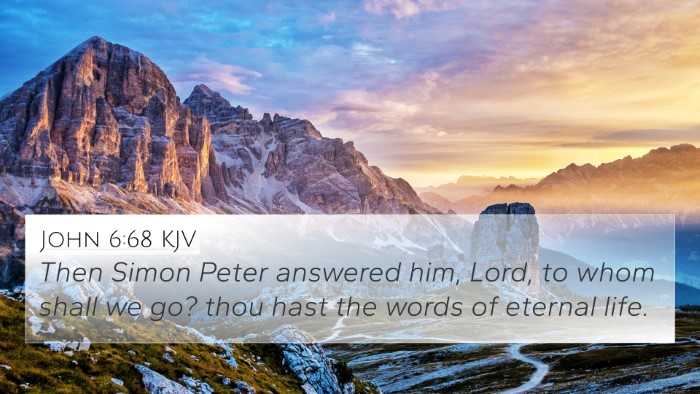Understanding Jeremiah 18:14
Introduction: Jeremiah 18:14 poses a profound inquiry into God's nature and the authenticity of worship. The verse reads:
“Will a man leave the snow of Lebanon, which comes from the rock of the field? Or will the cold flowing waters that come from another place be forsaken?”
This eloquent metaphor examines the folly of turning from the true source of strength and sustenance to seek fulfillment in lesser things. Below, we explore a synthesized meaning of this verse, referencing esteemed public domain commentaries by Matthew Henry, Albert Barnes, and Adam Clarke.
Verse Context
Jeremiah, one of the major prophets, often lamented the spiritual infidelity and idolatry of Israel. This particular verse contrasts the enduring qualities of God's provision with the transient and unreliable nature of pagan practices.
Detailed Analysis of Jeremiah 18:14
Matthew Henry’s Commentary Insights:
- Reflects on the beauty and permanence of divine providence symbolized by the snow and water from Lebanon.
- Illustrates the absurdity of abandoning the true God, exemplified by the imagery of nature, for man-made idols.
Albert Barnes’ Commentary Insights:
- Emphasizes the reliability of God's blessings that flow continuously like the cold waters.
- Critiques the tendency of the people to forsake what is divine for the empty promises of false religion.
Adam Clarke’s Commentary Insights:
- Points out the richness of the metaphor of 'snow' and 'flowing waters' as representative of God’s pure and refreshing nature.
- Comments on the spiritual implications of leaving God, stressing the need for loyalty and focused worship.
Keywords and Thematic Connections
This verse can be cross-referenced with various scriptures that enhance its meaning and significance:
- Isaiah 33:16: Discusses the rewards of trust in God as a source of sustenance.
- Psalms 36:9: Refers to God as the fountain of life, assuring that true fulfillment is found in Him.
- Jeremiah 2:13: Highlights God's people forsaking Him, the source of living water, for broken cisterns.
- Proverbs 14:27: Connects to the idea of choosing wisdom and life that comes from a relationship with God.
- John 4:14: Jesus speaking of the living water grants eternal life, connecting New Testament themes.
- Exodus 17:6: Where God provided water from the rock, underscoring His sustaining power.
- Matthew 5:6: Describes the blessedness of those who hunger and thirst for righteousness, tying back to God's provision.
Conclusion
The essence of Jeremiah 18:14 reminds believers of the importance of fidelity to the true source of life and fulfillment—God Himself. It challenges us to evaluate our commitments and the objects of our worship.
Further Study: Tools for Cross-Referencing
For those interested in exploring the connections between Bible verses, consider using:
- Bible Concordance: An invaluable tool for finding cross-references throughout the Scriptures.
- Bible Cross-Reference Guide: A resource for studying inter-Biblical dialogue and thematic links.
- Cross-Reference Bible Study: Techniques for understanding parallels and connections.
Application of Cross-Referencing Techniques
Using cross-references can deepen one’s understanding, such as:
- Identifying themes connecting Old and New Testament which allows for a detailed comparative analysis.
- Exploring links between the Prophets and New Testament teachings for a fuller grasp of the God’s revelation.



